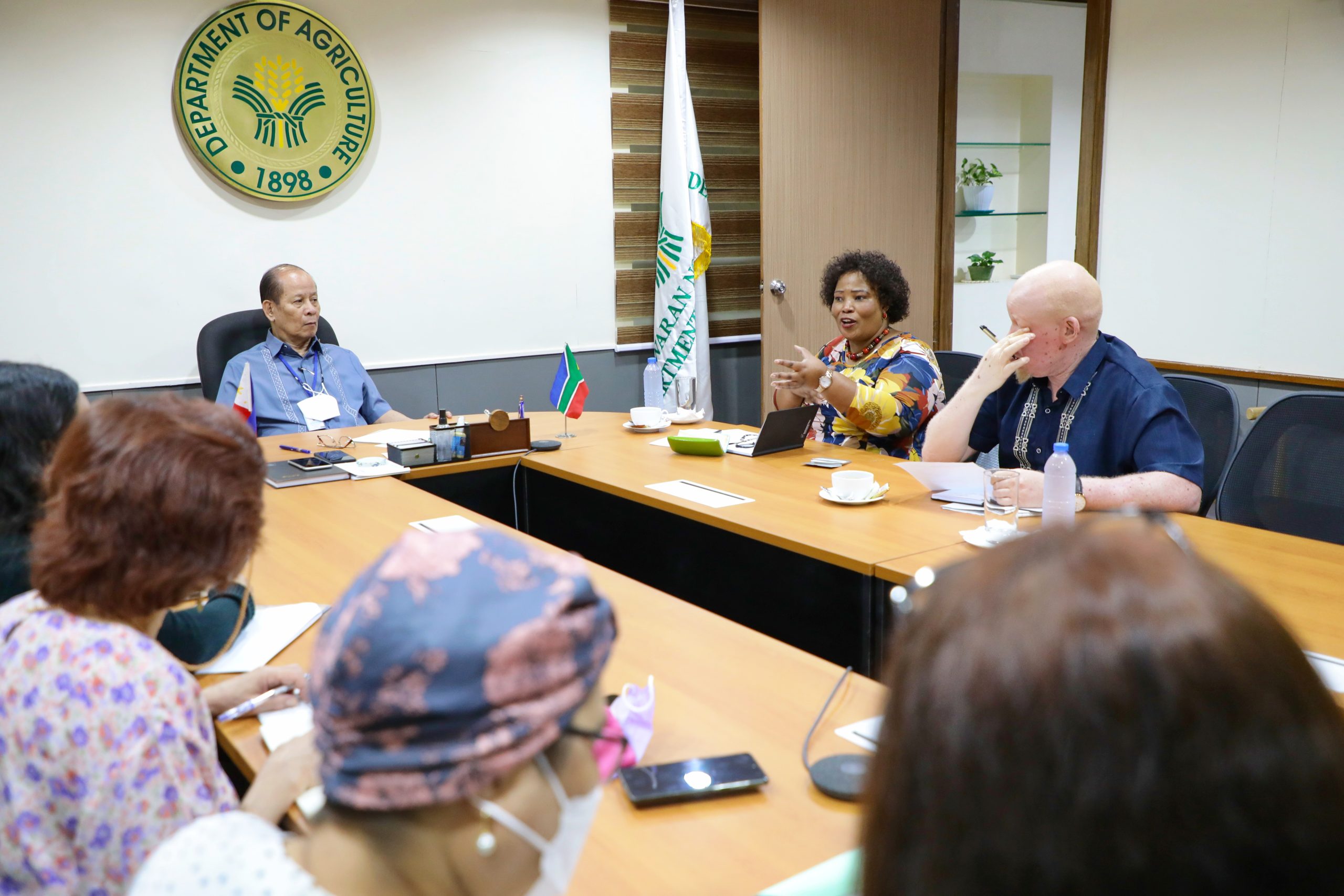
Emphasizing their countries’ agricultural expertise and goals towards food security, Philippine Department of Agriculture (DA) Senior Undersecretary Domingo F. Panganiban and South African Ambassador to the Philippines Bartinah Ntombizodwa Radebe-Netshitenzhe discussed potential areas for agricultural cooperation that can help boost the two countries’ food production and economic success.
Among those tackled during the courtesy call on March 13 was the DA’s final draft of the proposed Memorandum of Understanding (MOU) on Technical Cooperation in the Field of Agriculture between the Philippines and South Africa for the latter’s approval.
The MOU seeks to promote bilateral cooperation between the two countries on capacity-building, technology advancement, agricultural trade, agribusiness, and knowledge-sharing by conducting joint activities, projects, programs, and exchanges.
While Ambassador Radebe-Netshitenzhe took pride in South Africa’s vibrant production of citrus and meat, Senior Undersecretary Panganiban also encouraged the former to import tuna, sardines, coconut oil, mangoes, bananas, and other tropical fruits from the Philippines.
Since the establishment of diplomatic ties between the Philippines and South Africa in November 1993, the two countries have had a vibrant history of cultural, political, economic relations.
In 2021 alone, South Africa ranked 42 among 223 top trading partners and was the largest African trading partner of the Philippines, recording a total trade amount of US$ 125.1 M.
The Philippine Statistics Authority (PSA) reported that the Philippines’ US$ 85.5 M worth of export products to South Africa include desiccated coconut, tobacco, coconut oil and its fraction, mucilage and thickeners, carrageenan, preparations suitable for infants and young children, tobacco that were not stemmed-flue-cured, sauces and preparations, coffee extracts, essences and concentrates, and coconut concentrate.
On the other hand, the South African government mostly exported onion seeds, dog and cat food, fruit juice mixtures, undenatured ethyl alcohol, grape wine, peaches, mixture of juices, waters including mineral and aerated with added sugar, mandarins, and apple juice amounting to US$ 39.6 M.
Also discussed was the DA – Bureau of Plant Industry (BPI)’s visit to South Africa from February 27 to March 3, 2023 to perform pest risk analysis in select table grapes plantations. The DA-BPI delegation is currently finalizing its assessment. ### (Krystelle Ymari Vergara, DA-AFID)














